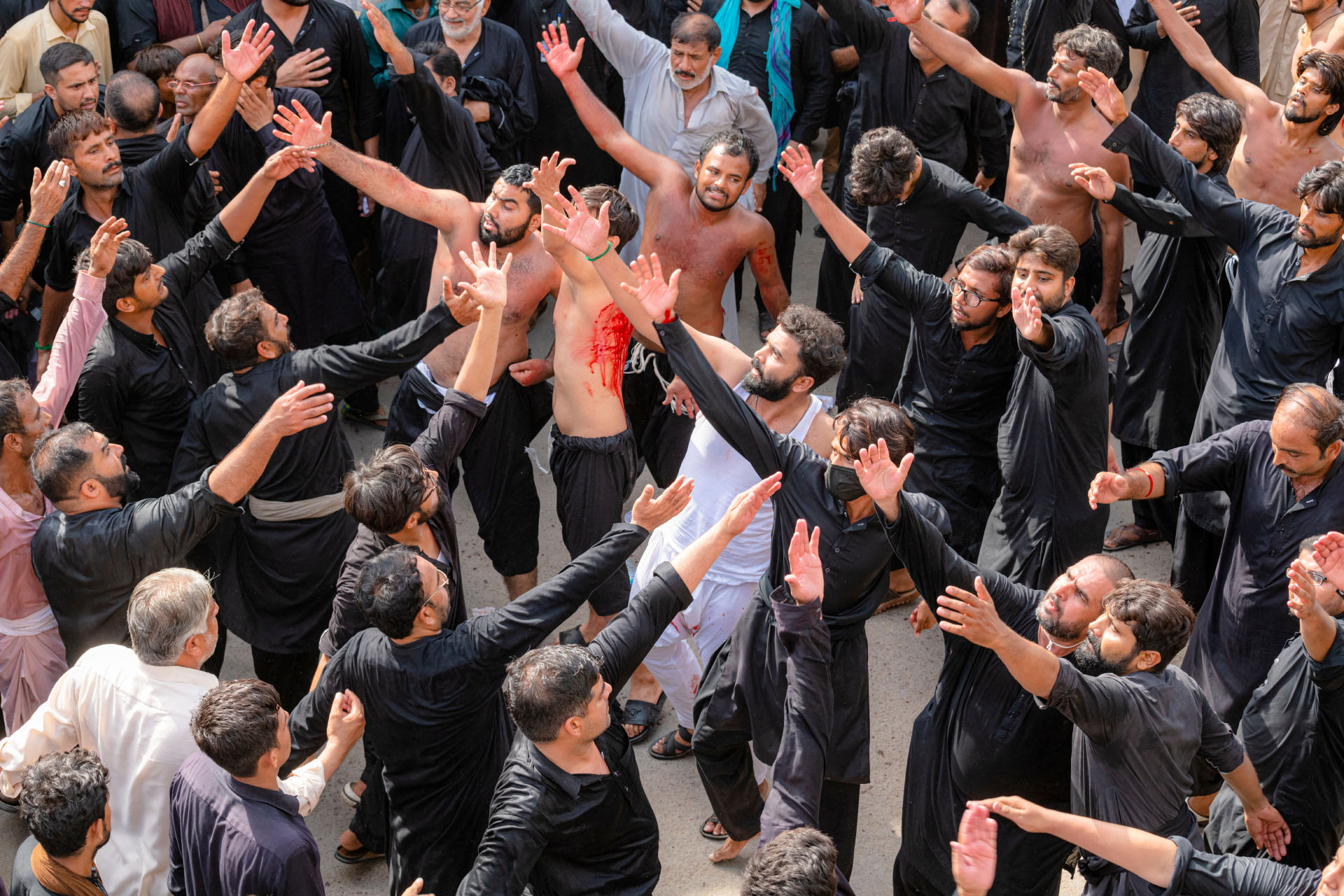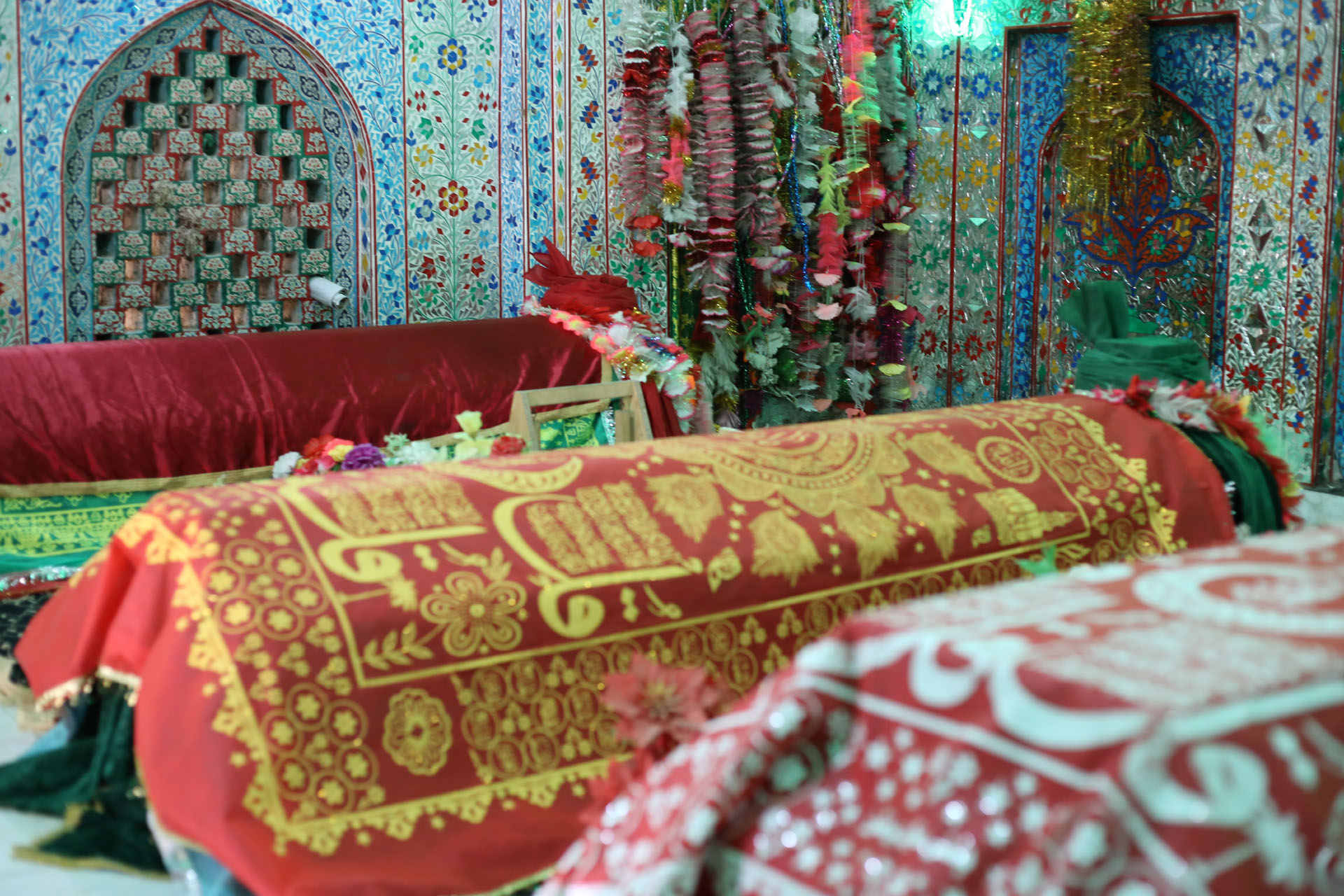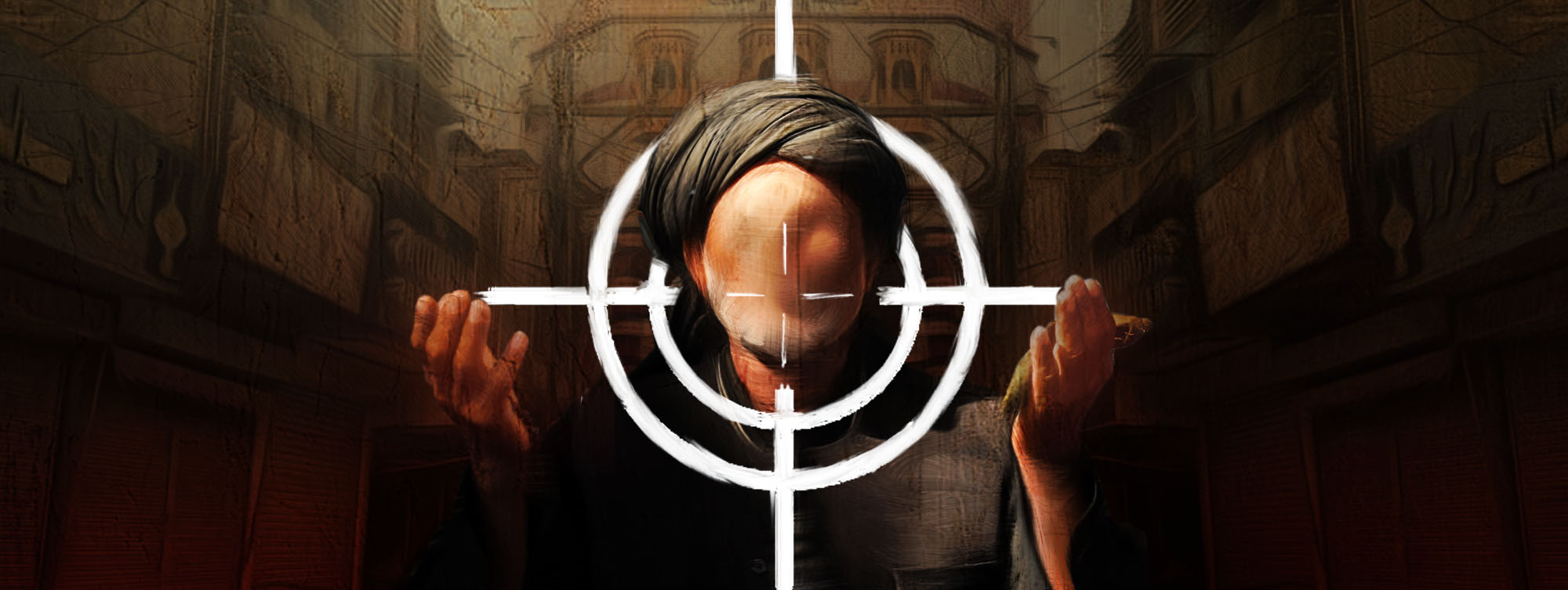|
Getting your Trinity Audio player ready...
|
B
y most accounts, Amir Abbas and his wife Mursalin got along with their neighbors and lived a quiet life. Amir was making good income selling crockery in his small shop in Dera Ismail Khan, a city in Pakistan’s Khyber Pakhtunkhwa province, and he and Mursalin were awaiting the birth of their second child. But last 25 January, Amir was murdered, with all signs pointing to his becoming yet another victim of target killings of Shias in Pakistan. He was 24 years old; he and Mursalin had been married for just three years.
According to Asif Raza Sulamani, Dera Ismail Khan coordinator of the registered non-profit Shaheed Foundation, “nearly 400 (Shia) individuals have been killed in Dera Ismail Khan, of whom 95 died in bomb blasts and the others in target killings” since 1986. Across Pakistan, estimates are that more than 4,000 Shias were killed as a result of sectarian violence from 2013 to 2021 alone.

The rise of extremist groups in the country in the last few years has resulted in more attacks against Shias, a Muslim minority in Sunni Muslim-dominated Pakistan. Rights advocates and political observers say a looming amendment to the country’s controversial blasphemy law may put Shias at even higher risk. As it is, though, Shias in places like Dera Ismail Khan say that they are already at wit’s end.
“They began by killing individuals who held high positions, followed by those who ran businesses, and are now focusing on small business owners and laborers,” says poet Syed Waseem Abbas, referring to those behind the attacks on Shias in Dera Ismail Khan. “Now that people are gradually leaving their homes, it would be intriguing to see who will exploit those regions.”
More known by the pen name Makhmoor Qalandr, he adds that some of the culprits “may have joined in the name of religion, but it appears that they were after our land as part of a larger plan.”
Sulamani of the Shaheed Foundation meanwhile says that “practically every family…in this place” has had a member “tortured” or “slain by unidentified assailants, and nothing is being done to stop it.” The Foundation in fact has been supporting 300 households in Dera Ismail Khan and two other nearby areas, all of them families of victims of Shia targeted killings.
“I haven’t lost only my husband,” says the wife of a Shia electrician who was murdered four years ago. “They also killed my brother and sister-in-law. They first murder my brother, then my sister-in-law after nine months, and then my spouse.”
Several members of their extended family have also been slain. Says the widow: “My two daughters used to attend school, but due to the continuous situation of fear, none of our children now attend school. Despite a recent protest by the families of the victims, nothing improved.”
The making of a violence hot spot
The World says that over 20 percent of all Muslims worldwide are Shias. Between 68and 80 percent of Shias reside in just four nations: Iran, Pakistan, India, and Iraq. In Pakistan, Shias are estimated to make up some 20 percent of the country’s 220 million people, with Shia communities concentrated primarily in a few areas such as Karachi, the northern Pakistani territory of Gilgit-Baltistan, and Punjab’s Jhang district and city of Rawalpindi. Other places, such as the Kurram district in Khyber Pakhtunkhwa and the Chitral region in northern Pakistan, also have smaller concentrations of Shias.
Although the ultraconservative among the Sunnis have always considered non-Sunnis as heretics, many trace the systematic and deliberate attacks on Shias in Pakistan back to the 1980s when General Zia-ul-Haq’s regime started promoting Wahhabism or the puritanical form of Sunni Islam. This move, say observers, increased sectarian tensions in the country.
Click the right arrow to view the infographic.
Sources: International Crisis Group, Human Rights Watch, Middle East Institute, Al Jazeera, Council for Foreign Relations
With Shias seen as heretics, they were therefore considered appropriate for attacks. Dera Ismail Khan soon became among the hot spots for Shia killings, with the attacks ranging from targeted murders of individuals to bombings of mosques, imambargahs (Shia places of worship), processions, and other places and events where people gather. The Shia community there has also had members suddenly go missing without a trace.
“On 22 March 2023, another individual, Aslam Baloch from Tehsil Prova, was slain in a location that was a frequent gathering spot, and the police station was not far away,” says Sulamani. “However, no one was apprehended at the time. He was listed as one of the missing people about five years ago, but after (his family gave his captors money), he was freed. His other family members were also missing, but they were later freed after (the captors) received payment.”
 Dera Ismail Khan is more than 350 kms southwest of the national capital Islamabad. Its proximity to the border with South Waziristan, a tribal territory that has served as a base for the Taliban and other extremist groups, is one of the key causes of its high rate of Shia killings. Because of the ease with which terrorists can enter and exit the region due to the porous border with Afghanistan, it is difficult for the government to maintain control over the movement of both militants and weapons.
Dera Ismail Khan is more than 350 kms southwest of the national capital Islamabad. Its proximity to the border with South Waziristan, a tribal territory that has served as a base for the Taliban and other extremist groups, is one of the key causes of its high rate of Shia killings. Because of the ease with which terrorists can enter and exit the region due to the porous border with Afghanistan, it is difficult for the government to maintain control over the movement of both militants and weapons.
The absence of competent law enforcement is another factor in violence persisting in the area. The police and other security agencies have been accused of failing to stop attacks or catch their perpetrators. This has given the attackers a sense of impunity and the confidence to carry out further assaults. But locals say that the violence has also been fueled by the seeming indifference of the state itself to the plight of the Shias.
According to Shia activist Syed Ali Abbas Zaidi, the perpetrators are never lone wolves. He says that behind the attacks are organized groups that are often offshoots of Sipah e Sahaba (now Ahle Sunnat Wal Jamaat ASWJ). Tehreek-e-Taliban Pakistan (TTP) and Lashkar-e-Jhangvi (LeJ) are among the groups believed to behind much of the violence, with their members apparently thinking that they will be rewarded for killing “infidel” Shias.
Unprotected by authorities?
A Pakistani police officer who declines to be named says that there have been a number of people suspected of involvement in violent crimes against Shias who were detained, but then later freed either due to a lack of evidence or because the victim’s family decided not to pursue the case. The officer explains that this is because many of the perpetrators belong to a wider group, and the victim’s family could be afraid of exposing other members of the clan to more violence. According to the officer, the police and the army are both making “rigorous efforts to apprehend offenders and guarantee the security and safety of the Shia population.”
But Sajjad Hussain, Amir Abbas’s father-in-law, recounts, “Several army soldiers and a captain came after we (his family and those of other victims of Shia killings) had protested for 30 hours and told us that it was pointless and ‘your family currently has 26 casualties, but that number may rise to 60. So in order to protect yourself, it is best to leave the area for a while.’ Although they are responsible for safeguarding us, they advised us to take precautions.”
“I don’t understand why the assailant who killed us has not yet been apprehended since even to get to our home, we must travel to checkpoints before being allowed (through),” he says. “How could an unidentified person come and kill us then?”

Hussain has relocated his entire family, among them his son and four daughters — including Mursalin and her two very young children — in Bhakkar in Punjab province. They have not received any aid from the government or any non-profit organization. Hussain is trying his best to keep the family afloat. He says, however, “In Dera Ismail Khan, I used to sell clothes, but nobody here knows who I am. Starting something here will take time. We are now using all of our savings, (but) I am willing to do any type of job.”
“It’s extremely difficult for me to manage everything,” says Hussain, unable to hold back his tears. “We strive to achieve justice for my daughter. What I will tell the newborn about his father?”
Azmat Abbas, a resident of one of the subdistricts in Khyber Pakhtunkhwa, says that the Shias in his community experienced extreme fear following Amir’s passing. People are fleeing their own houses because no one is providing them protection, he says.
“Many of the Shia people still living here are poor and rely on daily income,” says Azmat. “Since the army has told us that they cannot protect us, they have no control over it, many of us are preparing to sell our land here and purchase land in a safer location where we may live peacefully.”
“Seventeen members of my family have died as martyrs, but we still seek peace because it is what we need,” says poet Syed Waseem Abbas, who calls Dera Ismail Khan home. “We don’t want to live in a place where we used to sit on the ground and are now forced to stand at checkpoints. Our intention is for our children to carry pens, not guns. The locals here want peace and harmony.”◉

























